#Shakespeare was one of the good ones
Text
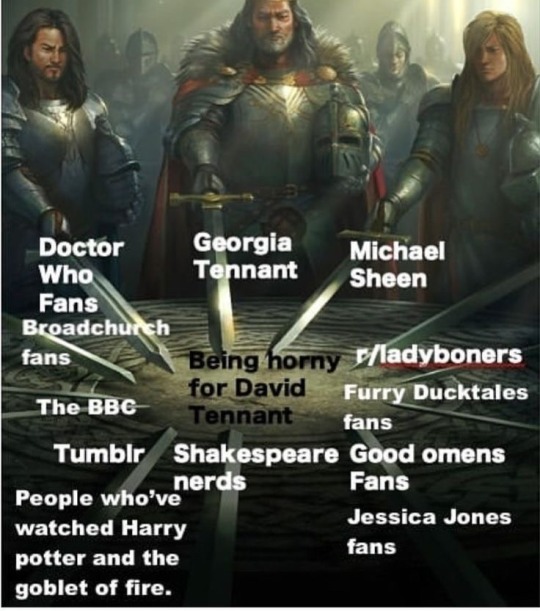
Ah, yes. Finally, the full version
[By tardis_time_with_13 on Instagram]
#the fact that all mentioned fandoms equal one person#in my case at least#david tennant#doctor who#tenth doctor#broadchurch#harry potter#barty crouch jr#shakespeare#marvel’s jessica jones#jessica jones#killgrave#good omens#crowley#ducktales#uncle scrooge#michael sheen#georgia tennant
2K notes
·
View notes
Text
the two gentlemen of verona is fun because it's (maybe) shakespeare's first play and there are a lot of elements in it (julia dressing up as a boy to serve the guy she's in love with, valentine's banishèd speech, etc) that you can tell he's sort of testing out and will refine later in better plays. but it's ALSO the only play in the canon with a dog in it. which leads me to conclude that dealing with crab was such an absolute nightmare in production that for the rest of his entire 36-play-long career shakespeare was like "holy fuck never again"
#sorry for twogents posting again but. feels good. feels organic#i'm sure one of my professors would know if this is true but let me believe it. it's so funny#he wrote a BEAR but never another dog#two gentlemen of verona#shakespeare#mine
762 notes
·
View notes
Text
Why Aziraphale is an unreliable narrator
Part 2: The Story of wee Morag

This is Part 2 of 3 total metas. Here are:
Part 1, in case you want to read about my analysis of the Story of Job first
and Part 3, in case you're impatient and want to jump ahead.
Fair warning though, for the sake of understanding some of the references, you're probably better off reading this chaptered meta chronologically. However, every part should work just as well as a standalone! I'll do my very best to make it so.
Alright, off or on you go beyond the cutty cut!
I'll start this second part off with a very brief summary of the main take aways and points from Part 1, which go as such:
Memory, as opposed to a third party's narration, is not a factual, objective retelling of a story or event. It's mingled and mangled with emotions, imaginations and exaggerations, projecting both the feelings and impressions you had back then as well as those you might have now in the present time back on whatever it is you are remembering. (Which is why we need to put everything that Aziraphale is remembering into the context of what he might have felt in the past, as well as what he's feeling right now.)
While this doesn't mean his (or anyone's) memories are lies, it does mean they're a very subjective and sometimes factually distorted representation of what actually happened, which, in our case, gives us a lot of subtext and a lot of not-there furniture to figure out and look at.
So, let's continue with S2E3 and the Story of wee Morag. We start our flashback with a scene of Aziraphale writing his diary entry on the 10th of November, 1827. Immediately, it's firmly established that this is once again not an outside-point-of-view narration, but rather what Aziraphale remembers and wrote down.
One thing that immediately stuck out to me here, is how helpful and kind Crowley is to Elspeth, pretty much from the very beginning when they meet her in the graveyard. Not only does he take on a Scottish accent so she won't perceive him as English (as she does with Aziraphale), but he also helps her drag the barrel that has the fresh body in it and, in the end, even pulls it all by himself while Elspeth simply follows behind them. Here's a rather poor-quality picture, for reference:
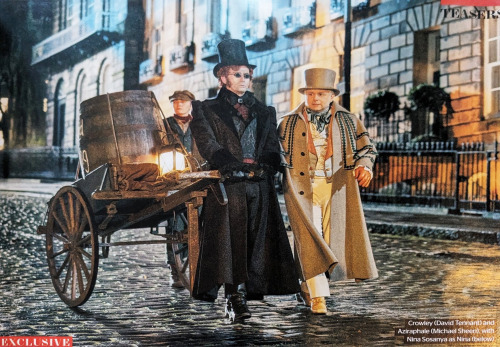
Now, we know that despite not showing it very often, Crowley has always been very fond of the humans and never really put himself on a pedestal simply because he's an immortal being himself. He likes humans, just like Aziraphale does. But, just like this story will tell us, Crowley knows that on top of liking humans, you can't just put them into boxes of good and evil and expect them to always do what is supposedly the "right" or "divinely good" thing to do. (Which is what differentiates him from Aziraphale in the way he understands and treats them, as we're shown in this minisode).
Him immediately and unspokenly helping Elspeth with dragging the barrel therefore might also be a first sign of a tiny projection from present day Aziraphale, as opposed to what Crowley might have actually done (probably just walked beside her, like Aziraphale) because he has the knowledge that Crowley really was so very kind to her in the end, wasn't he? And that he's kind to humans in general. ("Not kind! Off my head on Laudanum!" Sure, babe.)
Most of this minisode, in my opinion, is actually there to establish how Aziraphale's view of morality and good vs. evil used to be quite flawed and elitist –– and how Crowley has always been there to gently nudge him towards questioning his black and white view of heavenly right and hellishly wrong. That's why I think there's not as many hints in this minisode about Aziraphale's memories not being an accurate portrayal of what happened, as there are in the Story of Job or the magic show in 1941. (And, fear not, the latter will definitely be the most hint-heavy one). Alas, there's still a few bits and bobs in the Story of wee Morag that stuck out to me, that make a brief yet good case of the whole unreliable narration thing.
First of all: The way Aziraphale describes all of it in his diary is so different from the way we see him actually remembering it. It's almost like he tried to write this entry (and possibly all of his diary) as a bit of a thrilling short story, with himself as the main character. Which makes sense, given the fact that he adores books and would certainly be keen on dabbling in the art of capital-w Writing himself. It's yet again hinting at the fact that sometimes people (and angels) try to polish and bedazzle stories (and memories) to make them seem more exciting and adventurous, often to distract from the not-so-fun parts of it.
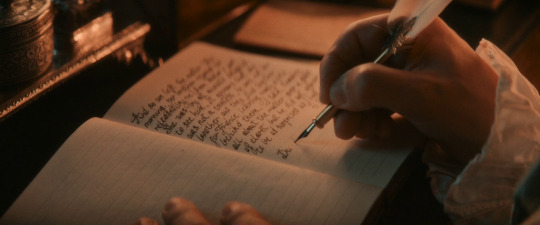
Like when Aziraphale's diary narrates:
"It was with heavy heart we arrived at Elspeth's destination. I was determined to thwart her monstrous plan!"
... and yet we see Crowley and Elspeth casually walking down the alleyway, very obviously not heavy-hearted in the slightest, while Aziraphale nervously scurries on behind them, very obviously not determined to thwart. (Timestamp-wise, it's around 17:38 in S2E3, in case you want to see for yourself.)
We get another cinematographic/auditory hint at the fact that Aziraphale's memory is heavily influenced by what he's feeling that very moment, when Dr. Mister Dalrymple –– FRCSE, thank you very much –– shows him the tumor he removed from the seven year old boy. You can see the shock and horror on Aziraphale's face once he learns of this child's cruel fate. We then proceed to hear Mr. Dalrymple's voice grow sort of echo-y and far away as the sad music swells up and drowns out his voice almost completely. It's awfully similar to what it feels like when really horrible news are broken to you and you dissociate and drift into a state of shock. Here's the clip of it, so you may listen for yourself:
It's clear that this is a very subjective portrayal of what Aziraphale is going through during this part of the memory. He's deeply horrified and saddened about the little boy having passed away so early in life – and we hear and feel this shock with him. Through him, because this is his memory. Whatever it is he's feeling and thinking, we're feeling and thinking it too because we're seeing it through his lense.
Another (less sad) hint at a possible exaggeration is the abnormally deep hole Crowley makes the two graveyard watch keepers fall into. I'm pretty sure he's very much in charge of his miracles, making this random slip-up seem a little silly – which is why I'm also pretty sure the "Might have slightly overdone it on that hole" is a wee bit of a meta hint at this just being another one of Aziraphale's dramatic bedazzlements of this story. For the *flings feather boa around neck* drama!
You know what else might be exaggerated? Hm, I dunno, maybe Crowley growing into the size of a tree for no apparent reason. Sure, yes, he's pretty high on Laudanum which is making him a bit loopy. But apart from that, it does seem an awfully big cinematographic euphemism for him being the metaphorical (and, once again, for the drama of it) literal bigger person in this scenario. He's the one who ends up saving Elspeth and who manages to secure a safe life without poverty and grave robbing for her. While Aziraphale was so tangled up in his own moral journey and main character-ism, missing that wee Morag was seconds away from death already, Crowley is the one who actually ends up growing stepping up for the human in need and saving them for good (pun intended).
In a way, it might just be Aziraphale's view of/feelings for Crowley in this very moment. Watching the demon outgrow what, according to Aziraphale's heavenly logic, is supposed to be a foul fiend, bestowing evil upon humanity – and growing into someone who does the exact opposite and saves Elspeth instead. Another larger-than-life character development, in Aziraphale's eyes. Literally.
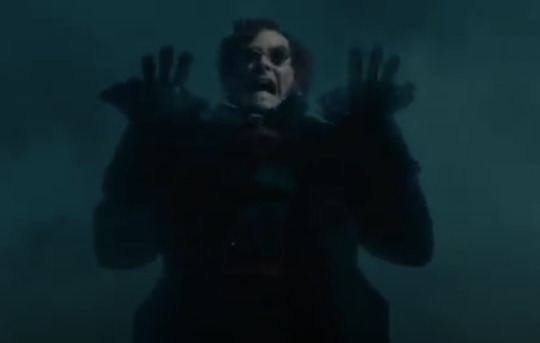
Let's switch back to the topic of the diary entry one last time, so I can make my final point of the this minisode's unreliable and a smidge over-dramatic narration of Dr. McFell. If you pay close attention, Aziraphale starts the entry we're all getting to experience with: "Last month, Crowley and I both happened to be in Edinburgh." Which means it didn't actually happen on the 10th of November, but rather at some point in October, 1827. Once we see Crowley get hydro-pumped back to Hell after rescuing Elspeth, the minisode ends with, presumably, the last sentence of Aziraphale's diary entry: "And that was the last I would see of Crowley for quite some time."
Take my hand and let's look at where the furniture isn't: This very clearly means that Crowley couldn't have been gone for more than a month, at best. Read again: "It happened last month and that was the last I would see of him for quite some time." This, albeit indirectly, clearly implies that when Aziraphale had sat down to write the diary entry, he had already run into Crowley again. Otherwise his phrasing would have probably been more along the lines of "... and I haven't seen Crowley since" or "... and Crowley has yet to return from wherever it is Hell's currently keeping him".
What's the point I'm trying to make? Good question. I guess my main point of storyteller Aziraphale being a bit over-dramatic in his narration is simply backed up by this, since A Single Month would barely pass as "quite some time" for an immortal being like him. And yet that's how he puts it, in his little Confidential Journals of A.Z. Fell, Vol. 603.
And another point that has absolutely nothing to do with the topic of this meta (but I'm still gonna make it 'cause this is my memory post): The meeting at St. Jame's Park in 1862 that so many, post-S2, took to be their first run-in after the Story of wee Morag, actually wasn't that at all. They saw each other at least once only a month later, as Aziraphale's diary lets us know. Which explains why he wasn't very surprised or concerned when he met Crowley in London, 1862. If there really had been 35 years in between those two events, the first one ending with Crowley being sucked back Downstairs to receive more than three decades worth of hellish punishment, wouldn't Aziraphale have been at least a tiny bit worried or more interested than:
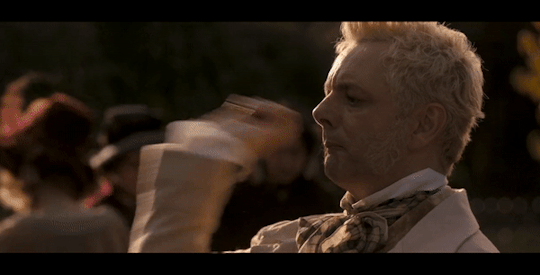
Just saying.
Alright, let's string this inflated hot air balloon of a post back together so we can outline some invisible furniture. This time with only two humble points:
Crowley through Aziraphale's lense
Backed up by how we are introduced to Bildad the Shuhite in the Job minisode (suave, cheeky, smart, passionate in shoemaking and obstetrics), it's growing quite clear that Aziraphale's memories and impressions of Crowley are very fond and impressed ones. He sees him as someone who's not only witty, funny and cool, but also as someone who has figured out way sooner and faster than him that nothing's ever black and white. Not God's plans and not the human's choices either.
Aziraphale as a bit of an exaggerating adventure author
With the direct parallel we get of inkslinger journalist!Aziraphale in the present day, it's quite apparent after this minisode that Aziraphale's memory is not only deeply influenced by his emotions, but that he also tends to have a bit of a dramatic touch to him. Although, you gotta give it to the guy: A month without seeing the love of your life, even if said life is eternal, can indeed seem like "quite some time".
Well, would you lookie here, we've reached the end of Part 2! What a journey it was. I hope you forgive me for the fact that I drifted off-course a few times. I just can't seem to reel in my silly little observations, even if they've got nothing to do with the point I'm trying to make. But hey, doesn't that just make me a little bit like Aziraphale's storytelling, in a way?
I'll let you be the judge of that.
See you in Part 3! And in case you haven't snuck a peak yet: here's Part 1 again.
Ta!
#good omens#good omens season 2#gos2#go2#good omens 2#good omens meta#ineffable husbands#aziraphale#crowley#good omens analysis#aziraphale is a storyteller#but not a very accurate one#story of wee morag#my own meta#aziraphale the Drama Queen#shakespeare who#unreliable but beloved story teller aziraphale
556 notes
·
View notes
Text



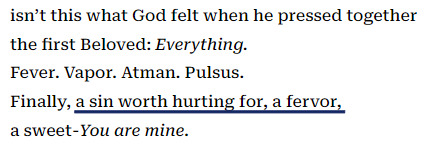
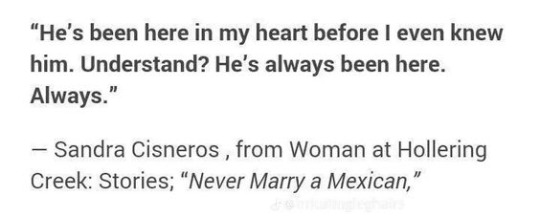



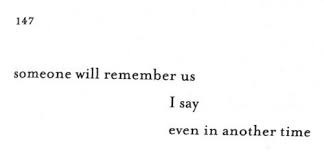
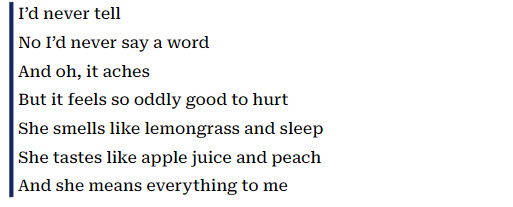


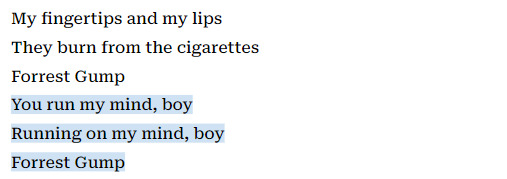

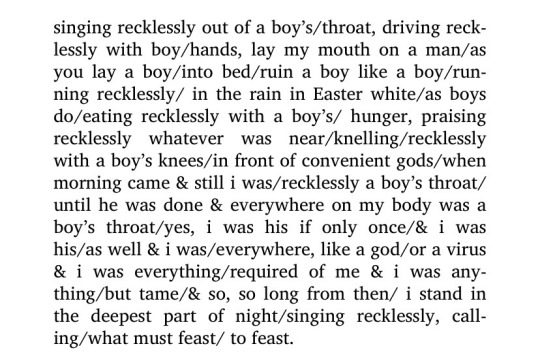
William Shakespeare // pinterest // Feel Good (2020-2021) cr. Joe Hampson & Mae Martin // Natalie Diaz These Hands, If Not Gods // Sandra Cisneros Woman at Hollering Creek: Stories; "Never Marry a Mexican" // Holland NUMBER BOY // Richard Siken Crush // 스물다섯 스물하나 Twenty-Five Twenty-One (2022) dir. Jung Ji-hyun // Sappho // Dodie She // Maureen Seaton Furious Cooking; "Swan Lake" // unknown // Frank Ocean Forrest Gump // แปลรักฉันด้วยใจเธอ I Told Sunset About You / I Promised You the Moon (2020-2022) dir. Naruebet Kuno & Tossaphon Riantong // Danez Smith Recklessly (via @tendermimi)
#on love#on falling in love#web weave#web weaving#poetry compilation#poetry parallels#william shakespeare#feel good#joe hampson#mae martin#natalie diaz#sandra cisneros#holland#richard siken#twenty five twenty one#kdrama#sappho#dodie#maureen seaton#frank ocean#i told sunset about you#i promised you the moon#danez smith#queer poetry#queer love#lgbtq#wlw#mlm#writing#poem
152 notes
·
View notes
Text


#I will defend Crowley's fashion choices#Doesn't mean that his choices were good#It's like the Shakespeare one but more#good omens#crowley#good omens 2
1K notes
·
View notes
Text
There's a chemical in every high schooler's brain that tells them Shakespeare is boring and it can only be deactivated when their English teacher gets them to read Hamlet
355 notes
·
View notes
Text
Ross Bryant in an improvised storyline be like “I WILL romance a character and I WILL tenderly touch their arm and I WILL take their hands & look lovingly into their eyes”
#Dropout tv#improvised Shakespeare#game changer#play it by ear#thought about this while watching Cornhole in One#He’s so good at improvised romcom vibes#makes me ship the characters every time lol#Ross is like “is anyone gonna romance this character?” and doesn’t wait for an answer
257 notes
·
View notes
Text
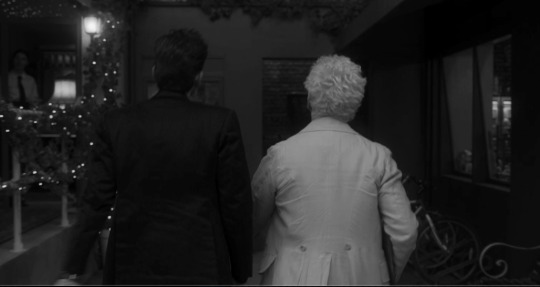

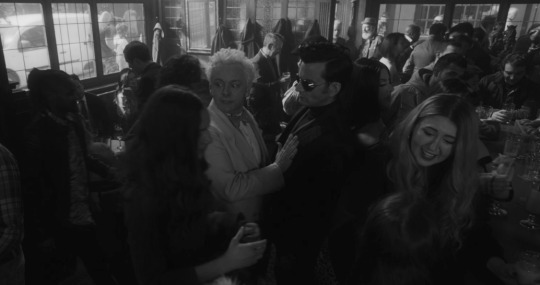
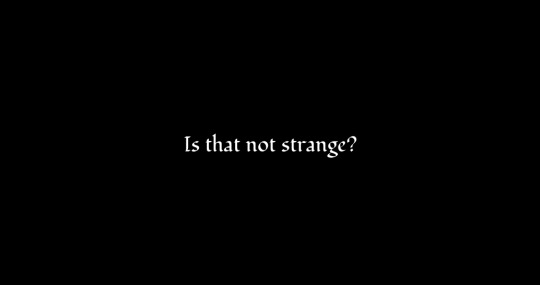
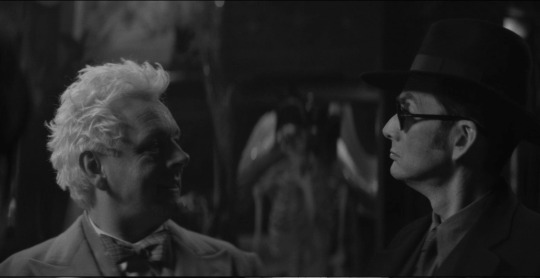
BEATRICE: You have stayed me in a happy hour: I was about to protest I loved you.
BENEDICK: And do it with all thy heart.
BEATRICE: I love you with so much of my heart that none is left to protest.
BENEDICK: Come, bid me do anything for thee.
#another shitty edit but i'm deeply unwell so#can you tell i saw some shakespeare recently#good omens#good omens 2#much ado about nothing#benedick#beatrice#aziraphale#crowley#s2e5#s2e2#s2e4#good omens edit#good omens 2 edit#ineffable husbands#ok but can we talk about that shot where they're walking side by side#because that one got me folks. i can't lie#good omens photoset#good omens spoilers#pls excuse the poor quality I am terrible at editing#william shakespeare
192 notes
·
View notes
Text
"Our players must wrong rights or else right wrongs while listing off the names of 90s songs."
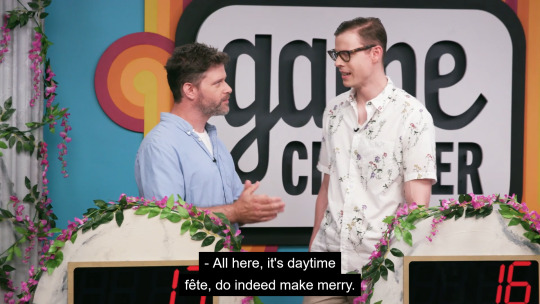
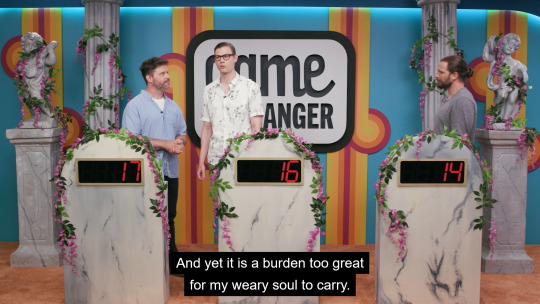

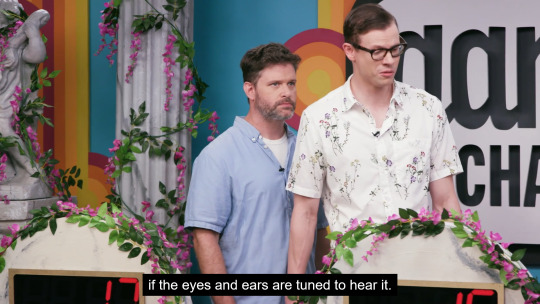
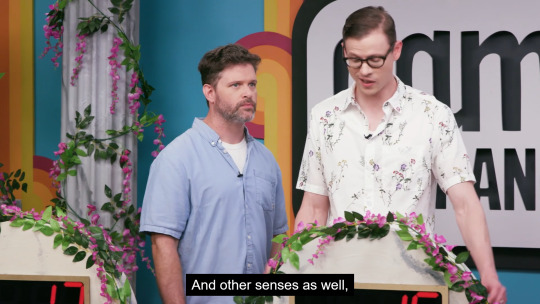


--
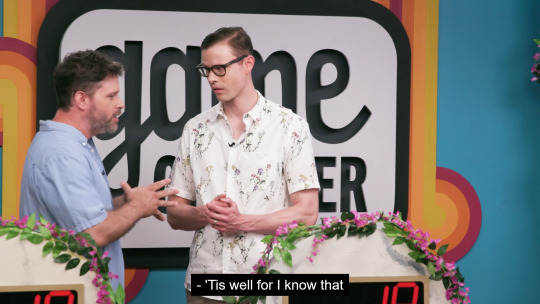
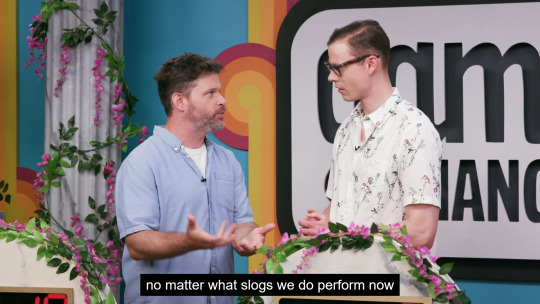


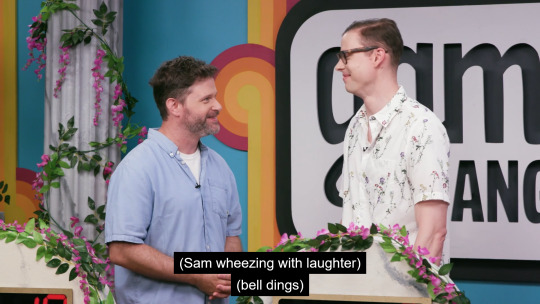
--
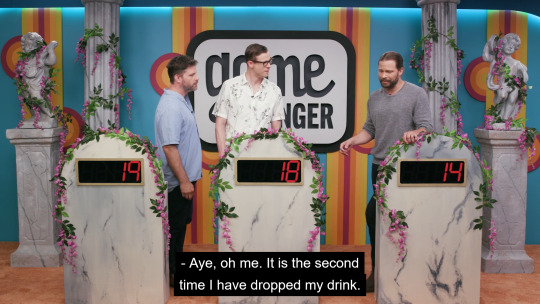
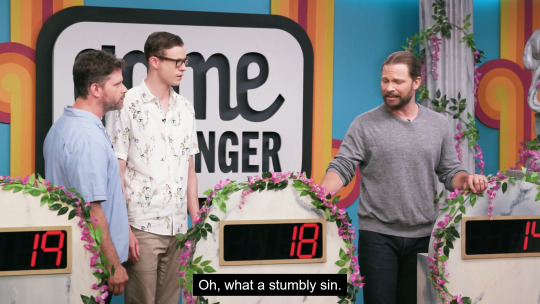

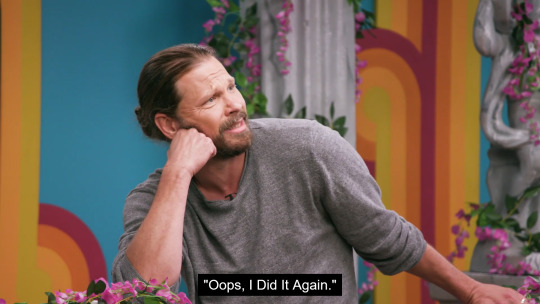

#sorry last one this was just too good#game changer#a game most changed#dropout#collegehumor#sam reich#joey bland#ross bryant#blaine swen#long post#mine#asdsdkj just amazing to hear shakespeare and 90s songs together
987 notes
·
View notes
Text
I need The Bookshop to Adore Crowley as much as The Bentley Adores Aziraphale.
#I don't care how#Putting Shakespeare's funny ones in front#Getting ready the sofa#Or more comfy#Or more Warm#Putting a blanket over him when he falls asleep#SOMETHING#good omens#ineffable husbands#good omens 2#aziraphale#crowley#aziracrow#aziraphale good omens#crowley good omens#the bookshop#The Bookshop Good Omens#the bentley#the bentley good omens
110 notes
·
View notes
Text
I'm REALLY enjoying this David Tennant hyperfixation I'm on. I've watched so many things I never would have before, and honestly, I've liked every single one of them so far!
#just watched the decoy bride#utterly ridiculous#and yet SO FLIPPING CUTE#will be adding to my romcom rewatches#staged was great#saw a screening of 'Good' which left me heartbroken for days#casanova was another ridiculous one that MADE ME CRY#up next.... Shakespeare!!#Hamlet followed by Much Ado!#david tennant#love this hyperfixation#adding more tags cause ive watched more things!#broadchurch was amazing#i can see why everyone keeps talking about it#I didnt care for You Me and Him#although I loved the outfits Tennant got to wear#Around the World in 80 days I finished like one big movie#now onto Jessica Jones!
227 notes
·
View notes
Text
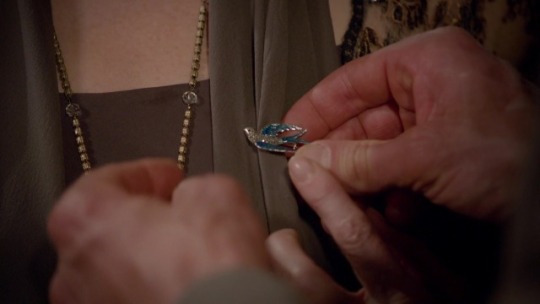
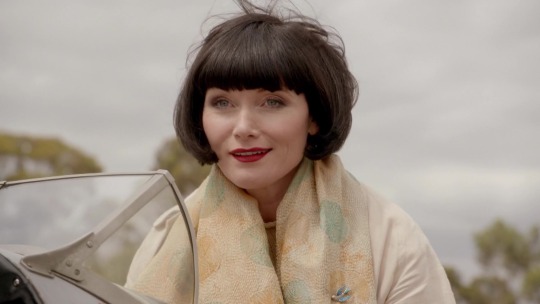
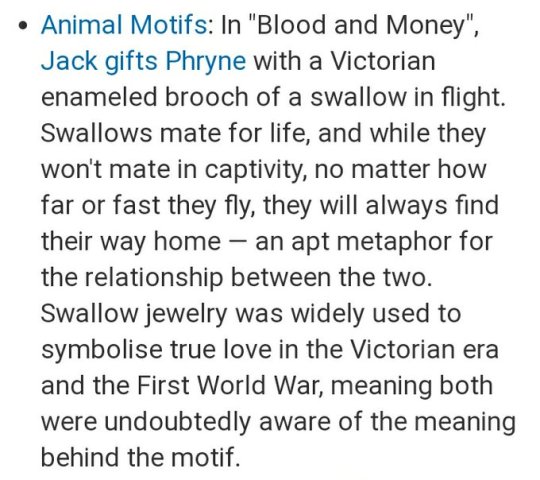
#i like that they both v quietly know the intention#of his giving it to her and her displaying it on her shawl as she's about to take flight#one of those rare moments where they're so soft#he listens and remembers her story he cares about her and he tries to meet her needs/desires- Ideal Man material#i also even like that it's 'stolen goods' bc it's like ofc it's very Them why would they even try to do it the Correct&Proper way [facepalm#and oh her delight at seeing him on that airfield#to borrow the shakespeare- i sometimes think the mfmm movie was cloying#whereas the 308 finale scene? it Satisfies#jack x phryne#miss fisher's murder mysteries#mfmm
60 notes
·
View notes
Photo

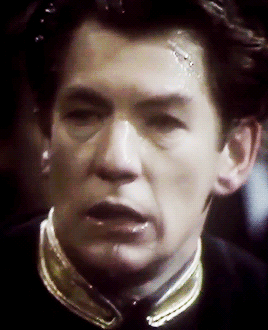





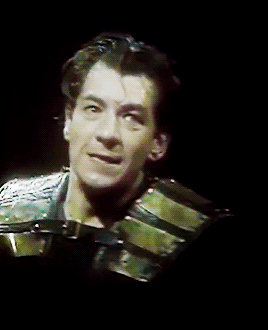
Ian McKellen as Macbeth | Royal Shakespeare Company (1979)
#ian mckellen#macbeth#royal shakespeare company#here me out#this version is !!!!!!!!!!!!!!!!!!!!!!!!!!!!!#astonishing#every single aspect#he's so good#and uhm so hot#last one like please help#(quality sucks ugh)#gifs*
918 notes
·
View notes
Text
Tell Your Dad You Love Him
A retelling of "Meat Loves Salt"/"Cap O'Rushes" for the @inklings-challenge Four Loves event
An old king had three daughters. When his health began to fail, he summoned them, and they came.
Gordonia and Rowan were already waiting in the hallway when Coriander arrived. They were leaned up against the wall opposite the king’s office with an air of affected casualness. “I wonder what the old war horse wants today?” Rowan was saying. “More about next year’s political appointments, I shouldn’t wonder.”
“The older he gets, the more he micromanages,” Gordonia groused fondly. “A thousand dollars says this meeting could’ve been an email.”
They filed in single-file like they’d so often done as children: Gordonia first, then Rowan, and Coriander last of all. The king had placed three chairs in front of his desk all in a row. His daughters murmured their greetings, and one by one they sat down.
“I have divided everything I have in three,” the king said. “I am old now, and it’s time. Today, I will pass my kingdom on to you, my daughters.”
A short gasp came from Gordonia. None of them could have imagined that their father would give up running his kingdom while he still lived.
The king went on. “I know you will deal wisely with that which I leave in your care. But before we begin, I have one request.”
“Yes father?” said Rowan.
“Tell me how much you love me.”
An awkward silence fell. Although there was no shortage of love between the king and his daughters, theirs was not a family which spoke of such things. They were rich and blue-blooded: a soldier and the daughters of a soldier, a king and his three court-reared princesses. The royal family had always shown their affection through double meanings and hot cups of coffee.
Gordonia recovered herself first. She leaned forward over the desk and clasped her father’s hands in her own. “Father,” she said, “I love you more than I can say.” A pause. “I don’t think there’s ever been a family so happy in love as we have been. You’re a good dad.”
The old king smiled and patted her hand. “Thank you, Gordonia. We have been very happy, haven’t we? Here is your inheritance. Cherish it, as I cherish you.”
Rowan spoke next; the words came tumbling out. “Father! There’s not a thing in my life which you didn’t give me, and all the joy in the world beside. Come now, Gordonia, there’s no need to understate the matter. I love you more than—why, more than life itself!”
The king laughed, and rose to embrace his second daughter. “How you delight me, Rowan. All of this will be yours.”
Only Coriander remained. As her sisters had spoken, she’d wrung her hands in her lap, unsure of what to say. Did her father really mean for flattery to be the price of her inheritance? That just wasn’t like him. For all that he was a politician, he’d been a soldier first. He liked it when people told the truth.
When the king’s eyes came to rest on her, Coriander raised her own to meet them. “Do you really want to hear what you already know?”
“I do.”
She searched for a metaphor that could carry the weight of her love without unnecessary adornment. At last she found one, and nodded, satisfied. “Dad, you’re like—like salt in my food.”
“Like salt?”
“Well—yes.”
The king’s broad shoulders seemed to droop. For a moment, Coriander almost took back her words. Her father was the strongest man in the world, even now, at eighty. She’d watched him argue with foreign rulers and wage wars all her life. Nothing could hurt him. Could he really be upset?
But no. Coriander held her father’s gaze. She had spoken true. What harm could be in that?
“I don’t know why you’re even here, Cor,” her father said.
Now, Coriander shifted slightly in her seat, unnerved. “What? Father—”
“It would be best if—you should go,” said the old king.
“Father, you can’t really mean–”
“Leave us, Coriander.”
So she left the king’s court that very hour.
.
It had been a long time since she’d gone anywhere without a chauffeur to drive her, but Coriander’s thoughts were flying apart too fast for her to be afraid. She didn’t know where she would go, but she would make do, and maybe someday her father would puzzle out her metaphor and call her home to him. Coriander had to hope for that, at least. The loss of her inheritance didn’t feel real yet, but her father—how could he not know that she loved him? She’d said it every day.
She’d played in the hall outside that same office as a child. She’d told him her secrets and her fears and sent him pictures on random Tuesdays when they were in different cities just because. She had watched him triumph in conference rooms and on the battlefield and she’d wanted so badly to be like him.
If her father doubted her love, then maybe he’d never noticed any of it. Maybe the love had been an unnoticed phantasm, a shadow, a song sung to a deaf man. Maybe all that love had been nothing at all.
A storm was on the horizon, and it reached her just as she made it onto the highway. Lightning flashed and thunder rolled. Rain poured down and flooded the road. Before long, Coriander was hydroplaning. Frantically, she tried to remember what you were supposed to do when that happened. Pump the brakes? She tried. No use. Wasn’t there something different you did if the car had antilock brakes? Or was that for snow? What else, what else–
With a sickening crunch, her car hit the guardrail. No matter. Coriander’s thoughts were all frenzied and distant. She climbed out of the car and just started walking.
Coriander wandered beneath an angry sky on the great white plains of her father’s kingdom. The rain beat down hard, and within seconds she was soaked to the skin. The storm buffeted her long hair around her head. It tangled together into long, matted cords that hung limp down her back. Mud soiled her fine dress and splattered onto her face and hands. There was water in her lungs and it hurt to breathe. Oh, let me die here, Coriander thought. There’s nothing left for me, nothing at all. She kept walking.
.
When she opened her eyes, Coriander found herself in a dank gray loft. She was lying on a strange feather mattress.
She remained there a while, looking up at the rafters and wondering where she could be. She thought and felt, as it seemed, through a heavy and impenetrable mist; she was aware only of hunger and weakness and a dreadful chill (though she was all wrapped in blankets). She knew that a long time must have passed since she was fully aware, though she had a confused memory of wandering beside the highway in a thunderstorm, slowly going mad because—because— oh, there’d been something terrible in her dreams. Her father, shoulders drooping at his desk, and her sisters happily come into their inheritance, and she cast into exile—
She shuddered and sat up dizzily. “Oh, mercy,” she murmured. She hadn’t been dreaming.
She stumbled out of the loft down a narrow flight of stairs and came into a strange little room with a single window and a few shabby chairs. Still clinging to the rail, she heard a ruckus from nearby and then footsteps. A plump woman came running to her from the kitchen, wiping her hands on her apron and softly clucking at the state of her guest’s matted, tangled hair.
“Dear, dear,” said the woman. “Here’s my hand, if you’re still unsteady. That’s good, good. Don’t be afraid, child. I’m Katherine, and my husband is Folke. He found you collapsed by the goose-pond night before last. I’m she who dressed you—your fine gown was ruined, I’m afraid. Would you like some breakfast? There’s coffee on the counter, and we’ll have porridge in a minute if you’re patient.”
“Thank you,” Coriander rasped.
“Will you tell me your name, my dear?”
“I have no name. There’s nothing to tell.”
Katherine clicked her tongue. “That’s alright, no need to worry. Folke and I’ve been calling you Rush on account of your poor hair. I don’t know if you’ve seen yourself, but it looks a lot like river rushes. No, don’t get up. Here’s your breakfast, dear.”
There was indeed porridge, as Katherine had promised, served with cream and berries from the garden. Coriander ate hungrily and tasted very little. Then, when she was finished, the goodwife ushered her over to a sofa by the window and put a pillow beneath her head. Coriander thanked her, and promptly fell asleep.
.
She woke again around noon, with the pounding in her head much subsided. She woke feeling herself again, to visions of her father inches away and the sound of his voice cracking across her name.
Katherine was outside in the garden; Coriander could see her through the clouded window above her. She rose and, upon finding herself still in a borrowed nightgown, wrapped herself in a blanket to venture outside.
“Feeling better?” Katherine was kneeling in a patch of lavender, but she half rose when she heard the cottage door open.
“Much. Thank you, ma’am.
“No thanks necessary. Folke and I are ministers, of a kind. We keep this cottage for lost and wandering souls. You’re free to remain here with us for as long as you need.”
“Oh,” was all Coriander could think to say.
“You’ve been through a tempest, haven’t you? Are you well enough to tell me where you came from?”
Coriander shifted uncomfortably. “I’m from nowhere,” she said. “I have nothing.”
“You don’t owe me your story, child. I should like to hear it, but it will keep till you’re ready. Now, why don’t you put on some proper clothes and come help me with this weeding.”
.
Coriander remained at the cottage with Katherine and her husband Folke for a week, then a fortnight. She slept in the loft and rose with the sun to help Folke herd the geese to the pond. After, Coriander would return and see what needed doing around the cottage. She liked helping Katherine in the garden.
The grass turned gold and the geese’s thick winter down began to come in. Coriander’s river-rush hair proved itself unsalvageable. She spent hours trying to untangle it, first with a hairbrush, then with a fine-tooth comb and a bottle of conditioner, and eventually even with honey and olive oil (a home remedy that Folke said his mother used to use). So, at last, Coriander surrendered to the inevitable and gave Katherine permission to cut it off. One night, by the yellow light of the bare bulb that hung over the kitchen table, Katherine draped a towel over Coriander’s shoulders and tufts of gold went falling to the floor all round her.
“I’m here because I failed at love,” she managed to tell the couple at last, when her sorrows began to feel more distant. “I loved my father, and he knew it not.”
Folke and Katherine still called her Rush. She didn’t correct them. Coriander was the name her parents gave her. It was the name her father had called her when she was six and racing down the stairs to meet him when he came home from Europe, and at ten when she showed him the new song she’d learned to play on the harp. She’d been Cor when she brought her first boyfriend home and Cori the first time she shadowed him at court. Coriander, Coriander, when she came home from college the first time and he’d hugged her with bruising strength. Her strong, powerful father.
As she seasoned a pot of soup for supper, she wondered if he understood yet what she’d meant when she called him salt in her food.
.
Coriander had been living with Katherine and Folke for two years, and it was a morning just like any other. She was in the kitchen brewing a pot of coffee when Folke tossed the newspaper on the table and started rummaging in the fridge for his orange juice. “Looks like the old king’s sick again,” he commented casually. Coriander froze.
She raced to the table and seized hold of the paper. There, above the fold, big black letters said, KING ADMITTED TO HOSPITAL FOR EMERGENCY TREATMENT. There was a picture of her father, looking older than she’d ever seen him. Her knees went wobbly and then suddenly the room was sideways.
Strong arms caught her and hauled her upright. “What’s wrong, Rush?”
“What if he dies,” she choked out. “What if he dies and I never got to tell him?”
She looked up into Folke’s puzzled face, and then the whole sorry story came tumbling out.
When she was through, Katherine (who had come downstairs sometime between salt and the storm) took hold of her hand and kissed it. “Bless you, dear,” she said. “I never would have guessed. Maybe it’s best that you’ve both had some time to think things over.”
Katherine shook her head. “But don’t you think…?”
“Yes?”
“Well, don’t you think he should have known that I loved him? I shouldn’t have needed to say it. He’s my father. He’s the king.”
Katherine replied briskly, as though the answer should have been obvious. “He’s only human, child, for all that he might wear a crown; he’s not omniscient. Why didn’t you tell your father what he wanted to hear?”
“I didn’t want to flatter him,” said Coriander. “That was all. I wanted to be right in what I said.”
The goodwife clucked softly. “Oh dear. Don’t you know that sometimes, it’s more important to be kind than to be right?”
.
In her leave-taking, Coriander tried to tell Katherine and Folke how grateful she was to them, but they wouldn’t let her. They bought her a bus ticket and sent her on her way towards King’s City with plenty of provisions. Two days later, Coriander stood on the back steps of one of the palace outbuildings with her little carpetbag clutched in her hands.
Stuffing down the fear of being recognized, Coriander squared her shoulders and hoped they looked as strong as her father’s. She rapped on the door, and presently a maid came and opened it. The maid glanced Coriander up and down, but after a moment it was clear that her disguise held. With all her long hair shorn off, she must have looked like any other girl come in off the street.
“I’m here about a job,” said Coriander. “My name’s Rush.”
.
The king's chambers were half-lit when Coriander brought him his supper, dressed in her servants’ apparel. He grunted when she knocked and gestured with a cane towards his bedside table. His hair was snow-white and he was sitting in bed with his work spread across a lap-desk. His motions were very slow.
Coriander wanted to cry, seeing her father like that. Yet somehow, she managed to school her face. Like he would, she kept telling herself. Stoically, she put down the supper tray, then stepped back out into the hallway.
It was several minutes more before the king was ready to eat. Coriander heard papers being shuffled, probably filed in those same manilla folders her father had always used. In the hall, Coriander felt the seconds lengthen. She steeled herself for the moment she knew was coming, when the king would call out in irritation, “Girl! What's the matter with my food? Why hasn’t it got any taste?”
When that moment came, all would be made right. Coriander would go into the room and taste his food. “Why,” she would say, with a look of complete innocence, “It seems the kitchen forgot to salt it!” She imagined how her father’s face would change when he finally understood. My daughter always loved me, he would say.
Soon, soon. It would happen soon. Any second now.
The moment never came. Instead, the floor creaked, followed by the rough sound of a cane striking the floor. The door opened, and then the king was there, his mighty shoulders shaking. “Coriander,” he whispered.
“Dad. You know me?”
“Of course.”
“Then you understand now?”
The king’s wrinkled brow knit. “Understand about the salt? Of course, I do. It wasn't such a clever riddle. There was surely no need to ruin my supper with a demonstration.”
Coriander gaped at him. She'd expected questions, explanations, maybe apologies for sending her away. She'd never imagined this.
She wanted very badly to seize her father and demand answers, but then she looked, really looked, at the way he was leaning on his cane. The king was barely upright; his white head was bent low. Her questions would hold until she'd helped her father back into his room.
“If you knew what I meant–by saying you were like salt in my food– then why did you tell me to go?” she asked once they were situated back in the royal quarters.
Idly, the king picked at his unseasoned food. “I shouldn’t have done that. Forgive me, Coriander. My anger and hurt got the better of me, and it has brought me much grief. I never expected you to stay away for so long.”
Coriander nodded slowly. Her father's words had always carried such fierce authority. She'd never thought to question if he really meant what he’d said to her.
“As for the salt,” continued the king, "Is it so wrong that an old man should want to hear his daughters say ‘I love you' before he dies?”
Coriander rolled the words around in her head, trying to make sense of them. Then, with a sudden mewling sound from her throat, she managed to say, “That's really all you wanted?”
“That's all. I am old, Cor, and we've spoken too little of love in our house.” He took another bite of his unsalted supper. His hand shook. “That was my failing, I suppose. Perhaps if I’d said it, you girls would have thought to say it back.”
“But father!” gasped Coriander, “That’s not right. We've always known we loved one another! We've shown it a thousand ways. Why, I've spent the last year cataloging them in my head, and I've still not even scratched the surface!”
The king sighed. “Perhaps you will understand when your time comes. I knew, and yet I didn't. What can you really call a thing you’ve never named? How do you know it exists? Perhaps all the love I thought I knew was only a figment.”
“But that’s what I’ve been afraid of all this time,” Coriander bit back. “How could you doubt? If it was real at all– how could you doubt?”
The king’s weathered face grew still. His eyes fell shut and he squeezed them. “Death is close to me, child. A small measure of reassurance is not so very much to ask.”
.
Coriander slept in her old rooms that night. None of it had changed. When she woke the next morning, for a moment she remembered nothing of the last two years.
She breakfasted in the garden with her father, who came down the steps in a chair-lift. “Coriander,” he murmured. “I half-thought I dreamed you last night.”
“I’m here, Dad,” she replied. “I’m not going anywhere.”
Slowly, the king reached out with one withered hand and caressed Coriander's cheek. Then, his fingers drifted up to what remained of her hair. He ruffled it, then gently tugged on a tuft the way he'd used to playfully tug her long braid when she was a girl.
“I love you,” he said.
“That was always an I love you, wasn’t it?” replied Coriander. “My hair.”
The king nodded. “Yes, I think it was.”
So Coriander reached out and gently tugged the white hairs of his beard. “You too,” she whispered.
.
“Why salt?” The king was sitting by the fire in his rooms wrapped in two blankets. Coriander was with him, enduring the sweltering heat of the room without complaint.
She frowned. “You like honesty. We have that in common. I was trying to be honest–accurate–to avoid false flattery.”
The king tugged at the outer blanket, saying nothing. His lips thinned and his eyes dropped to his lap. Coriander wished they wouldn’t. She wished they would hold to hers, steely and ready for combat as they always used to be.
“Would it really have been false?” the king said at last. “Was there no other honest way to say it? Only salt?”
Coriander wanted to deny it, to give speech to the depth and breadth of her love, but once again words failed her. “It was my fault,” she said. “I didn’t know how to heave my heart into my throat.” She still didn’t, for all she wanted to.
.
When the doctor left, the king was almost too tired to talk. His words came slowly, slurred at the edges and disconnected, like drops of water from a leaky faucet.
Still, Coriander could tell that he had something to say. She waited patiently as his lips and tongue struggled to form the words. “Love you… so… much… You… and… your sisters… Don’t… worry… if you… can’t…say…how…much. I… know.”
It was all effort. The king sat back when he was finished. Something was still spasming in his throat, and Coriander wanted to cry.
“I’m glad you know,” she said. “I’m glad. But I still want to tell you.”
Love was effort. If her father wanted words, she would give him words. True words. Kind words. She would try…
“I love you like salt in my food. You're desperately important to me, and you've always been there, and I don't know what I'll do without you. I don’t want to lose you. And I love you like the soil in a garden. Like rain in the spring. Like a hero. You have the strongest shoulders of anyone I know, and all I ever wanted was to be like you…”
A warm smile spread across the old king’s face. His eyes drifted shut.
#inklingschallenge#theme: storge#story: complete#inklings challenge#leah stories#OKAY. SO#i spend so much time thinking about king lear. i think i've said before that it's my favorite shakespeare play. it is not close#and one of the hills i will die on is that cordelia was not in the right when she refused to flatter her dad#like. obviously he's definitely not in the right either. the love test was a screwed up way to make sure his kids loved him#he shouldn't have tied their inheritances into it. he DEFINITELY shouldn't have kicked cordelia out when she refused to play#but like. Cordelia. there is no good reason not to tell your elderly dad how much you love him#and okay obviously lear is my starting point but the same applies to the meat loves salt princess#your dad wants you to tell him you love him. there is no good reason to turn it into a riddle. you had other options#and honestly it kinda bothers me when people read cordelia/the princess as though she's perfectly virtuous#she's very human and definitely beats out the cruel sisters but she's definitely not aspirational. she's not to be emulated#at the end of the day both the fairytale and the play are about failures in storge#at happens when it's there and you can't tell. when it's not and you think it is. when you think you know someone's heart and you just don'#hey! that's a thing that happens all the time between parents and children. especially loving past each other and speaking different langua#so the challenge i set myself with this story was: can i retell the fairytale in such a way that the princess is unambiguously in the wrong#and in service of that the king has to get softened so his errors don't overshadow hers#anyway. thank you for coming to my TED talk#i've been thinking about this story since the challenge was announced but i wrote the whole thing last night after the super bowl#got it in under the wire! yay!#also! the whole 'modern setting that conflicts with the fairytale language' is supposed to be in the style of modern shakespeare adaptation#no idea if it worked but i had a lot of fun with it#pontifications and creations
68 notes
·
View notes
Text
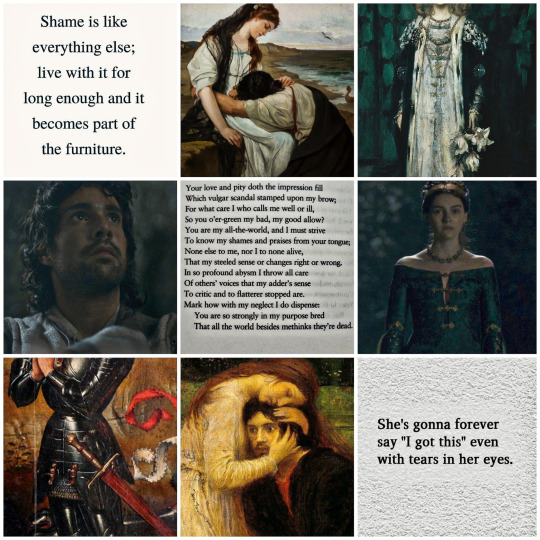
You are so strongly in my purpose bred
That all the world besides methinks they're dead.
-William Shakespeare, Sonnet 112
#anyways just some alicole brainrot about the one scene where alicent walks like an angel on earth towards criston and literally saves him#we do not make a big enough deal of this scene#it is everything#it is also so sonnet 112#from now on he doesn't care about what anyone else thinks of his reputation or sense of honor except for his queen!!!!#i love these two if you couldnt tell#hotd#house of the dragon#hotd moodboard#moodboard#alicole#alicent hightower#criston cole#ser criston cole#alicole moodboard#the quality is also apparently good lol im so relieved#william shakespeare#Shakespeare#sonnet 112
74 notes
·
View notes
Text
the fact that ophelia is on stage and hears all of “to be or not to be” already makes me scream sob foam at the mouth etc. but what if hamlet knew she was there and was speaking the monologue to her. just venting to his friend. there would probably need to be a few cuts for it to make sense but i cannot stop thinking about this now
#i love when productions emphasise their relationship beyond whats in the text#like the andrew scott version with ophelia comforting hamlet in act one#that was good shit#like!!!!#we need to see their relationship as it was before the play in some capacity#otherwise hamlet just seems like an asshole#hamlet#hamlet prince of denmark#ophelia#shakespeare#willy shakes
361 notes
·
View notes